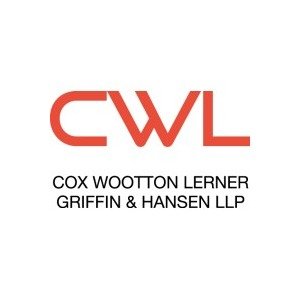Best Commercial Real Estate Lawyers in Los Angeles
Share your needs with us, get contacted by law firms.
Free. Takes 2 min.
Free Guide to Hiring a Real Estate Lawyer
List of the best lawyers in Los Angeles, United States
About Commercial Real Estate Law in Los Angeles, United States
Commercial real estate in Los Angeles is a vibrant and dynamic sector that plays a crucial role in the city's economy. This field encompasses a variety of property transactions including office buildings, retail spaces, industrial properties, and multifamily housing units. Given Los Angeles' status as a major urban hub, commercial real estate transactions are often complex, involving numerous legal considerations such as zoning laws, land use regulations, and environmental assessments. Legal expertise is typically necessary to navigate these complexities and ensure compliance with the myriad of local, state, and federal laws governing commercial real estate.
Why You May Need a Lawyer
Engaging a lawyer in commercial real estate transactions is often advisable due to the intricate nature of these dealings. Some common situations wherein legal assistance may be required include:
- Negotiating and drafting leases or purchase agreements to ensure favorable terms and compliance with local laws.
- Resolving disputes between landlords and tenants which might involve contract interpretations or lease violations.
- Assisting with zoning and land use issues that can affect the manufacturing, modification, or expansion of a commercial property.
- Managing legal aspects of financing, refinancing, and securing investment partners for commercial projects.
- Handling litigation matters including environmental compliance, property damage, and breach of contract suits.
Local Laws Overview
In Los Angeles, commercial real estate is governed by a combination of local, state, and federal regulations. Key aspects include:
- Zoning Laws: Los Angeles has specific zoning codes that designate areas for different uses such as residential, commercial, or industrial. Understanding these codes is crucial when developing or altering property use.
- Building Codes: The city's comprehensive building and safety codes dictate the standards for construction and occupancy to ensure safety and compliance.
- Environmental Regulations: Properties may be subject to regulations aimed at protecting the environment, which can include requirements for environmental impact assessments or remediation plans.
- Rent Control Laws: Certain properties might fall under local rent control ordinances, affecting the permitted rent increases and tenant eviction procedures.
Frequently Asked Questions
What is the role of a commercial real estate lawyer?
A commercial real estate lawyer assists with transactions, negotiations, legal documentation, dispute resolution, and compliance with relevant laws.
Can a lawyer help with zoning issues?
Yes, a lawyer knowledgeable in local zoning laws can provide guidance and representation to navigate zoning approvals or disputes.
What are common legal issues in commercial leasing?
Common issues include lease negotiation, rent disputes, maintenance responsibilities, and lease renewal or termination conditions.
How do environmental regulations affect commercial properties?
Environmental laws may mandate assessments and require addressing contamination, which can impact property development and use.
Can I buy a commercial property without a lawyer?
While legally possible, it is not advisable due to the complexity of transactions and potential legal risks involved.
What are the implications of breaching a commercial lease?
Breach consequences vary but may include lawsuits, financial penalties, and eviction or loss of property rights.
How does Los Angeles rent control affect commercial leases?
Rent control primarily affects residential properties; however, some mixed-use properties might be subject to local ordinances impacting rent and leases.
What should be included in a commercial lease agreement?
A commercial lease should outline rent terms, duration, responsibilities for repairs, and conditions for termination among other key terms.
Can a lawyer assist in selling a commercial property?
Yes, lawyers help with preparing sale agreements, conducting due diligence, and ensuring compliance with all legal requirements.
How are property taxes assessed for commercial properties?
In Los Angeles, property taxes are based on the assessed value of the property, which is determined by the County Assessor’s office.
Additional Resources
Several resources can provide further guidance and support for those involved in commercial real estate:
- Los Angeles Department of City Planning: Offers information on zoning and land use regulations.
- Los Angeles County Assessor’s Office: Provides details on property assessments and taxes.
- California Association of Realtors: A valuable resource for market trends and real estate training.
- American Bar Association - Real Property Division: Provides insights and updates on real property law nationwide.
Next Steps
If you find yourself needing legal assistance in commercial real estate, consider taking the following steps:
- Identify the specific legal issue or requirement you have, such as negotiating a lease, compliance questions, or dispute resolution.
- Research and choose a qualified commercial real estate lawyer in Los Angeles by examining credentials, experience, and area of expertise.
- Prepare all pertinent documentation and information related to your case or transaction to assist your lawyer in strategizing effectively.
- Schedule a consultation to discuss your legal needs, potential strategies, and the costs involved in obtaining legal services.
Lawzana helps you find the best lawyers and law firms in Los Angeles through a curated and pre-screened list of qualified legal professionals. Our platform offers rankings and detailed profiles of attorneys and law firms, allowing you to compare based on practice areas, including Commercial Real Estate, experience, and client feedback.
Each profile includes a description of the firm's areas of practice, client reviews, team members and partners, year of establishment, spoken languages, office locations, contact information, social media presence, and any published articles or resources. Most firms on our platform speak English and are experienced in both local and international legal matters.
Get a quote from top-rated law firms in Los Angeles, United States — quickly, securely, and without unnecessary hassle.
Disclaimer:
The information provided on this page is for general informational purposes only and does not constitute legal advice. While we strive to ensure the accuracy and relevance of the content, legal information may change over time, and interpretations of the law can vary. You should always consult with a qualified legal professional for advice specific to your situation.
We disclaim all liability for actions taken or not taken based on the content of this page. If you believe any information is incorrect or outdated, please contact us, and we will review and update it where appropriate.

















